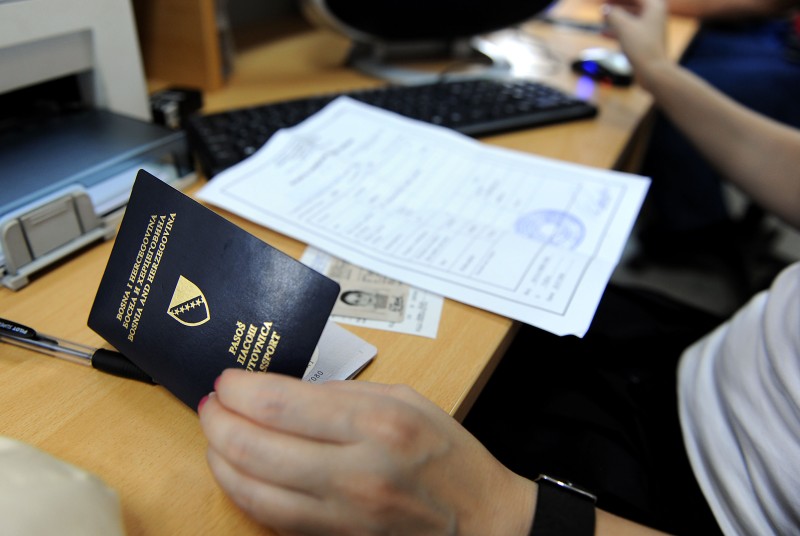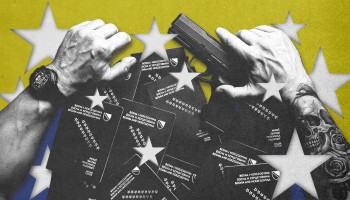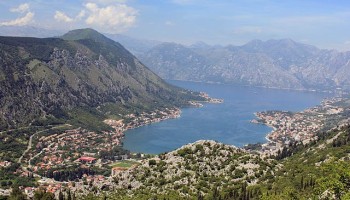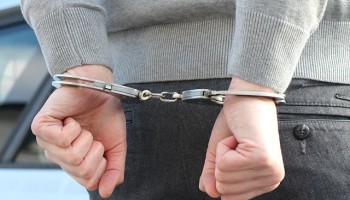The United Kingdom has sanctioned suspected Balkan criminals and gangs involved in smuggling and passport fraud as part of the country’s first-ever sanctions regime that tackles human traffickers and smuggling networks around the globe.
The move comes after Bosnia’s Center for Investigative Journalism (CIN) exposed how international fugitives obtained genuine Bosnian passports using stolen identities.
The list of individuals and firms the U.K. Foreign Office sanctioned on Wednesday includes a range of targets, from a small boat supplier in Asia to informal Hawala money movers in the Middle East, and gang leaders based in North Africa.
Among them are individuals accused of supplying fake passports and forged documents to Balkan gangs, including Montenegro’s Kavač and Škaljari groups, which are involved in drug trafficking, contract killings and people smuggling across Europe and the U.K.
One of the named is Dalibor Ćurlik, accused of procuring forged documents for the Kavač gang, and Nikola Vein, who U.K. authorities say helped the Škaljari group secure fake passports for smuggling purposes. Several others with alleged ties to the two gangs were also sanctioned for similar roles.
“These gangs aren’t just trafficking people—they’re moving weapons, laundering money, and posing a direct threat to global security,” the U.K. government said in a statement announcing the measures.
Sanctions include asset freezes and travel bans, with British entities prohibited from doing business with those designated.
The Sarajevo-based CIN, Bosnia and Herzegovina’s OCCRP partner, published the investigation in May, revealing how hitmen, traffickers and fugitives wanted by Interpol were able to obtain genuine Bosnian passports using stolen or unused identities.
According to CIN, at least 60 leaders and high-ranking members of criminal clans from across the Balkans obtained legitimate Bosnian passports or ID cards over a ten-year period. These documents were issued in cities including Banja Luka, Brčko, Zvornik, Sarajevo, Mostar and Goražde. Some of the individuals used those documents while preparing or committing murders abroad.
Though different groups facilitated the process, the method remained nearly identical.
Based on police investigation records, organizers reportedly had access to an old government database that showed which citizens had never applied for personal documents. They used that information to create forged ID cards, inserting their own photos. Collaborators inside Bosnia would obtain certificates of citizenship on their behalf, register false addresses using fake rental contracts, and submit completed applications to police. Applicants would then be photographed and fingerprinted, often receiving official documents within days under expedited procedures.
The stolen identities have caused serious problems for Bosnian citizens whose personal data was used without their knowledge. Some only discovered the fraud when attempting to travel or renew documents. CIN reported cases where citizens were flagged during border checks because their identity had been used by wanted criminals. In at least one case, authorities placed a red marker on a citizen’s passport file after confusing him with a foreign fugitive.
Among those who used Bosnian passports under false identities was Radoje Živković, a member of the Kavač clan. According to CIN, he obtained the documents in 2021 and later masterminded the 2022 assassination of rival gang leader Jovan Vukotić in Turkey.
In its follow-up reporting, CIN noted that several of the individuals and gangs sanctioned by the U.K. appeared in its investigations—particularly those tied to identity theft and fraudulent documentation. While U.K. authorities did not cite CIN directly, the overlap has drawn attention across the Balkans.
The Kavač and Škaljari gangs have been central to a years-long turf war stretching from the Balkans to Western Europe. Their members have been linked to large-scale cocaine trafficking, contract killings and cross-border money laundering, often facilitated by fraudulent documentation and corrupt officials.






